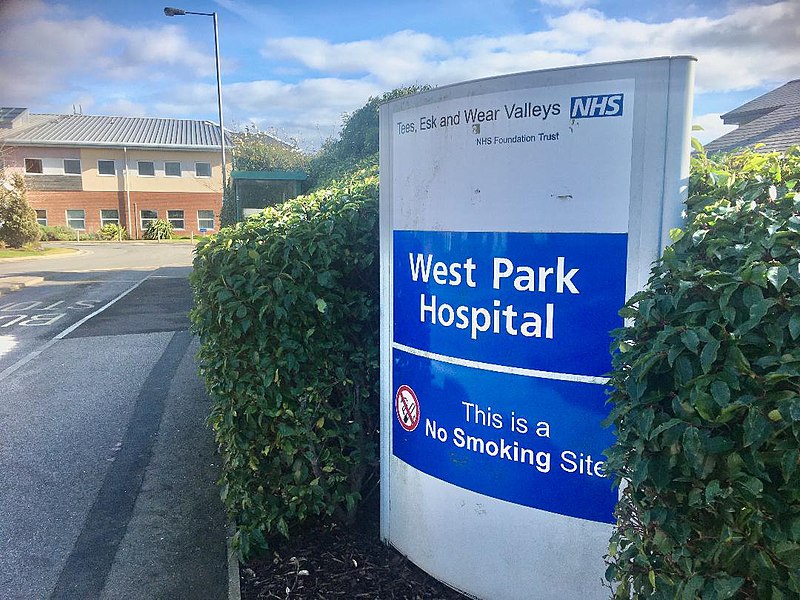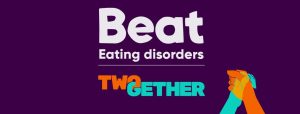TRIGGER WARNING: Eating disorders

To mark Eating Disorders Awareness Week we today speak to Ali Young, who uses his lived experience of anorexia to help others through the journey to recovery.
Life has come full circle for Ali Young – and he couldn’t be happier about it.
Just a decade ago he was an in-patient at West Park Hospital in Darlington, receiving treatment for anorexia.
Now, following a full recovery, he is an assistant practitioner in an NHS eating disorder unit – using his lived experience to support others on the journey back to health.
“There is no denying the treatment saved my life,” said Ali. “I fought it at first, but I know now that anorexia doesn’t have to be a life-long condition.
“You can break the cycle. You can fully recover. I’ve worked with lots of people, and know lots of people, who have recovered – so never let go, never give up, it can be done.”
Adventure turned into a nightmare
Ali moved to Scarborough with his flatmate in 2009, after they were both made redundant from their jobs in Lincoln.
What started as an adventure, however, turned into a nightmare.
After securing his dream job as a support worker, Ali was looking forward to a bright new future – until he started struggling with his eating.
“Looking back now I can see that, from the age of 17, I’d had periodic issues with eating. I’d go on a detox, as I’d call it, lose a lot of weight, then stop. I didn’t let it go too far,” he said.
“I followed that pattern of weight loss for several years, but never thought it was a problem. The word anorexia was never mentioned. It didn’t impact my life, it felt just normal to me.”
However, as his new job became more stressful, so his eating habits started spiralling. New Year 2011 marked the start of the darkest period of his life – as anorexia took over.
“Even when the people around me said it needed to stop, I wouldn’t. I couldn’t see the wood for the trees and just carried on working, “detoxing” and saying everything was fine,” he said.
“I wasn’t getting enough nutrition and began experiencing physical symptoms because of this. My colleagues noticed and I was encouraged to get help.
“I was in denial; I didn’t think there was a problem. When I was told I couldn’t go on working unless I saw a GP, I agreed to go – just to prove them wrong. Obviously they right all along.”
Anorexia “gets a grip” on you
Ali was treated in hospital. Firstly in Scarborough, to re-hydrate him, and then at West Park, run by Tees. Esk and Wear Valleys NHS Foundation Trust in Darlington.
“I genuinely thought I was still in control. The strength and depth of how anorexia controls you, and doesn’t allow you to see any other perspective, is unbelievable,” he said.
“I’ve never known anything like it. There is no flexibility of thinking. Everyone was urging me to eat – but my response was I was living a healthy lifestyle. That was the anorexia talking.
“It’s a terrible illness. I like to think I’m a decent person, but I look back and know I was a monster at times. That wasn’t me, it was the anorexia, it gets a grip on you.”
Entering treatment finally gave Ali the chance to reflect on what his concept of “normal” had become. It was the wakeup call he so desperately needed – but didn’t want.
“A lot of people say you need to hit rock bottom, but I don’t necessarily agree with that – something has to break the chain, otherwise the destructive cycle carries on,” he said.
First steps to recovery
Ali was among the first patients with eating disorders to be treated at Birch Ward at West Park Hospital. Although he was terrified on arrival, he now credits the staff for saving his life.
“I was shocked, confused, and angry when I got there. I didn’t want to be in hospital, I just wanted to get out. It was a scary, daunting time – but the most valuable thing, truly,” he said.
“Recovery will probably be one of the hardest things in your life, but also one of the most rewarding. It is possible to break through. It can be done.
“It wasn’t plain sailing, and I definitely wasn’t the perfect patient, but it worked. I don’t think there was a lightbulb moment, more like a dimmer switch – the light gradually came back on.
“I felt lonely at first, as it’s the unknown. But having such a great team, who explained things and supported me, made such a difference. They really did help to guide me through.”
Ali was discharged from hospital just after Christmas in 2012. As he said his final farewells, he was excited at the prospect of finally rebuilding his life.
“I did have a wobble, but the difference then was that I noticed there was a problem – and so I reached out for extra support,” he recalls.
“I could see the path I was on, and I wanted to get off it. I knew it wasn’t the answer, I knew it would just lead to problems, so I didn’t hesitate and off I went to the doctor.”
Life comes full circle
Ali’s GP referred him to local services. Once back on track, he started volunteering for the team – talking to others about his experiences.
His volunteering eventually led to a full-time job and now Ali is helping others through recovery as an assistant practitioner in a community-based eating disorders service.
“This illness is not a life-long condition – you can get the life back you deserve,” he said. “It’s difficult, as anorexia can turn you into a person you aren’t, but treatment is out there.
“You have to take a leap of faith. You might not see how bad it is but, on some level, I believe people know what isn’t right, what doesn’t feel right.
“You can break the cycle, you can recover, you just need to reach out.”

Support, help and further resources:
BEAT: The charity provides a wide range of information and guidance on eating disorders. It also holds specialist courses and operates a helpline for those in need: The UK’s Eating Disorder Charity – Beat (beateatingdisorders.org.uk)
EDNE: Eating Distress North East provides information on family support, counselling, health and wellbeing workshops, mindfulness courses and training and education: Eating Distress North East – Charitable Organisation (edne.org.uk)
GPs: Your own doctor can provide information on eating disorders and refer you to specialist services.
Recovery College Online: Information for service users, carers, staff and anyone with an interest in eating disorders. Eating Disorders – Recovery College Online.